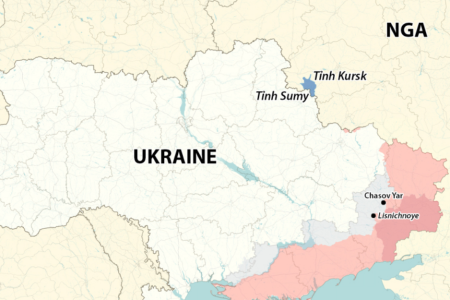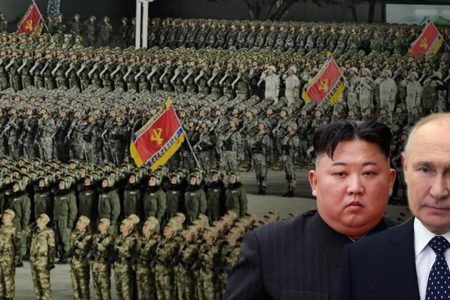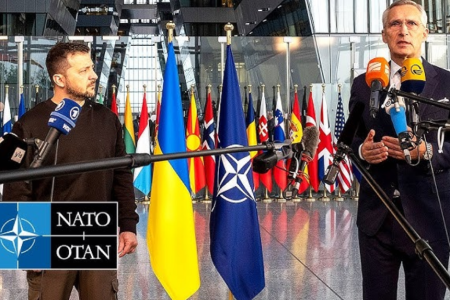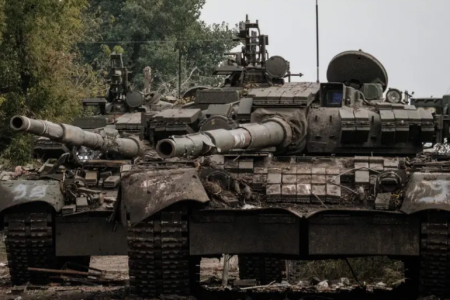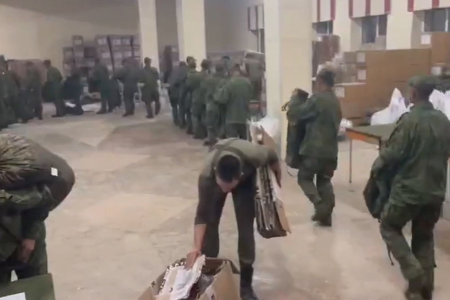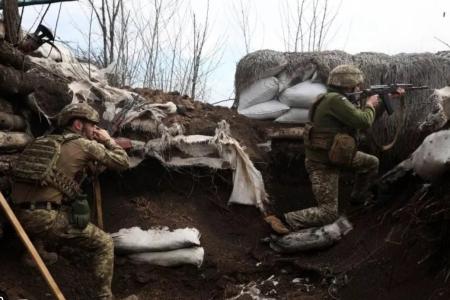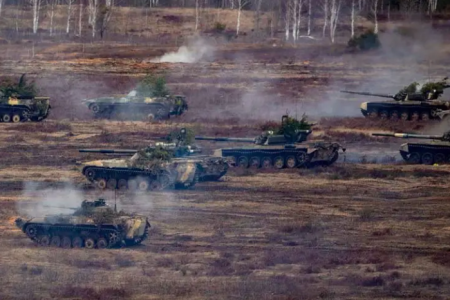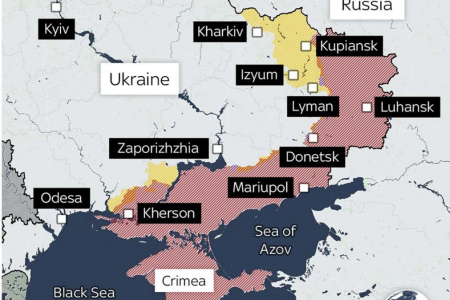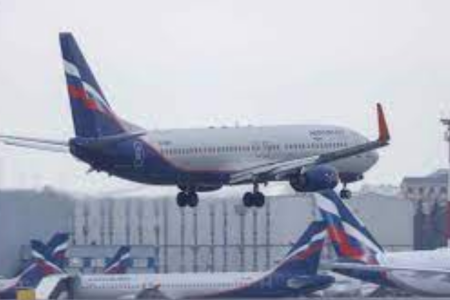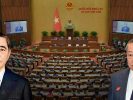The United Nations warned on April 21 that the world is at risk of famine “of a scale as mentioned in the Bible” due to the COVID-19 pandemic.
David Beasley, executive director of the World Food Program (WFP) on April 22 warned that the world is facing a widespread famine because of COVID-19.
He emphasized that there are about 30 developing countries that can face hunger, including 10 countries with more than 1 million people on the verge of malnutrition. “We are not talking about people who hold their hungry stomachs going to bed, but we are talking about the extreme and endangered situation, about the people on the verge of starving,” he said.
The fourth annual global report on food crisis estimates that the number of people who suffer from hunger may increase from 135 million to more than 250 million. The people most at risk are in the 10 countries affected by military conflicts, economic crisis and climate change. They are Yemen, Democratic Republic of Congo, Afghanistan, Venezuela, Ethiopia, South Sudan, Sudan, Syria, Nigeria and Haiti.
Mr. Beasley emphasized: “The COVID-19 pandemic, which no one could have anticipated, took us to an unprecedented limit. And now it is a real storm. We are facing the spread of a famine of the scale mentioned in the Bible.”
The head of the WFP, who had just recovered from COVID-19, started the Security Council briefing by saying: “Sorry for saying so bluntly.”
Nothing is too blunt with what might happen to the world – even before this global health crisis – what David Beasley called the worst humanitarian disaster since the World War II.
In an interview, Mr. Beasley also expressed concern that 30 million people, and possibly more, could die in a few months if the United Nations does not guarantee additional funding and food. But this is also a world where donors are reeling from the high financial costs of their own COVID-19 crisis.
Mr. Beasley said that no one told him they would turn away from the most vulnerable. But he admits they will need to assess the state of their country first. He warned that chaos elsewhere could return around the world.
Mr. Beasley demands action immediately before hundreds of millions of people fall into starvation.

Speaking to the UN Security Council during a video meeting, Mr. Beasley warned: “The truth is we don’t have time.”
He called for action: “I believe that with our expertise and cooperation, we can assemble teams, implement the programs needed to make sure the COVID-19 pandemic does not become a crisis about people and food.”
Beasley proposes a number of measures to avoid this. He asked all combatants to provide unrestricted access to humanitarian aid, as well as invest $350 million in creating a logistics center network to ensure aid transportation all around the world.
The WFP leader said: “First of all, we need peace.”
Beasley also addresses the need for early warning systems, while noting the importance of avoiding financial shortages, trade disruptions and loss of access to starving parts of the population.
He concluded: “Time does not belong to us, so act wisely and quickly.”
In fact, food insecurity has increased since last year and the COVID-19 pandemic seems to be exacerbating the situation.

The global food crisis report says 135 million people in 55 countries were living in a severe food crisis or humanitarian emergency last year. This is the highest number in the four years the United Nations made the report, after an increase of more than 20 million people. This is due to conflicts, economic shocks and weather related factors such as drought.
The report also found that about 183 million others are at risk of falling into a food crisis if face with a new shock. Because the data collection for this report ended before the outbreak of COVID-19, the author warned that a pandemic could make the situation worse for the hundreds of millions of people already living in the aforementioned food insecurity.
Meanwhile, WFP on the same day forecast that the number of people facing serious food insecurity could nearly double this year, to 265 million because The impact of the COVID-19 pandemic. According to the WFP, reduced tourism revenue, limited travel and many other areas affected by the disease are expected to bring about 130 million people to extreme poverty this year, plus about 135 million people are living in this situation.
In recent days, under the influence of a pandemic, food crisis warnings have been constantly issued by the World Health Organization (WHO), the UN Food and Agriculture Organization (FAO) and the World Trade Organization (WTO).
The COVID-19 epidemic is affecting not only the economy but also the food security of many countries because of the border closure and trade restrictions of many countries.
Measures to cope with the COVID-19 epandemic, such as banning entry, border closures and restrictions on free trade, are creating unprecedented pressure on the world’s food supply network.
Mr. Qu Dongyu, general director of the UN Food and Agriculture Organization (FAO) issued the latest statement, calling for international efforts to mitigate the impact of the COVID-19 pandemic on the real supply chain and prevent food crisis on a global scale.
Dongyu emphasized that when countries are forced to enact strong measures to prevent the spread of the great COVID-19, they need to find ways to minimize the potential impact on global food or food supply.
Some countries that are indirectly influencing the global food supply chain include Kazakhstan. The country has banned exports of wheat, buckwheat seeds, buckwheat, sugar and some vegetables.
Or as Russia has suspended export of processed cereals. Vietnam, the third largest rice exporting country in the world, currently reserves rice and has suspended rice exports.
Agricultural activity is also another concern.
In some parts of the world, spring is a very important time for planting or harvesting. But restricting trade, trading agricultural products, especially curfew regulations in many countries, will seriously affect the harvest, cultivation and output of agricultural products.
French newspaper Le Monde noted “European agriculture was paralyzed” during the pandemic. The border closure because of an unprecedented health crisis is making it difficult for agricultural producers across Europe to find seasonal workers as usual, mainly from Eastern Europe while agricultural products are in the harvest. Each year at the time of this fruit and vegetable harvest, the fields in Western Europe still receive hundreds of thousands of seasonal workers from Eastern Europe. Now the blockade to prevent the epidemic has made crops from all over Europe vulnerable to labor shortages.
Le Monde, for example, Spain, the leading fruit producing country in Europe, now almost all fields in this country have no harvest. The newspaper said that not only in Spain but throughout Europe, France, Italy, Belgium, then the Netherlands, Germany to Poland … everywhere alarmed about the state of agricultural paralysis due to scarcity of labor force. Countries are trying to, under allowable conditions, to find temporary solutions, temporarily rescuing agriculture to produce staple food and food for daily life.
German Agriculture Minister Julia Kloeckner said: “Farms and food producers are seriously affected by the German government’s ban. Normally there are about 30,000 farms need to sell their products in March, not only in the asparagus harvest but also in seeding and planting of new trees. And in May, the number of farms wishing to harvest and sell is up to 80,000.”
It can be said that global food is a game of humanity losing to the reality.
FAO claims that we are producing enough food for everyone on earth. However, about one-third of that food is discarded and wasted, while 820 million poor people struggle with their children every day.
When COVID-19 was put in this game, things got even worse.
In the international arena, countries that rely on food imports more than export will see high food price inflation, such as the Middle East, Japan and South Korea.
Economies with weak currencies will also be affected, such as India or Indonesia.
FAO emphasizes that international cooperation is more important than ever in a pandemic.
Fitch Solutions said that major exporters such as Vietnam (rice), Russia (cereals), Kazakhstan (barley, wheat flour, sunflower oil) should consider lifting recent export restriction orders if national reserves. Cabinet was full.
Regional organizations such as Food Industry Asia and the ASEAN F&B Alliance call on the governments to ensure social isolation without serious disruption in the food supply chain.
On the consumer side, the two organizations said that hoarding food for more than 14 days was unnecessary.
If everyone buys just enough, we will have food for even the poor who endure the disease. If a group of people hoard too much, the supply chain will collapse.
The Bible describes events and situations that will mark the “end of the age,” or the “end of the world.” The Bible calls this period the “last days.” One of the remarkable features of the last days, or the last period prophesied, is that famine happens from place to place.
But humanity can avoid this calamity by working together, sharing the burden and consequences of a pandemic.
In Vietnam, it seems that some policymakers have predicted a widespread famine, so the Government has stopped exporting rice.
With a population of nearly 100 million, Vietnam needs to take precautions of the worst situations, in order to avoid crisis and food shortages for people in these difficult circumstances.
Hai Yen from Hanoi – Thoibao.de (Translated)



